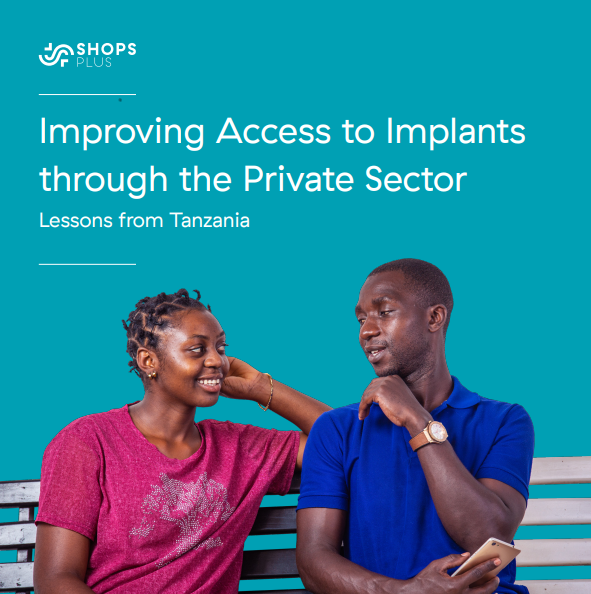
Resource Library
Improving Access to Implants through the Private Sector
The popularity of contraceptive implants is rapidly increasing in low- and middle-income countries, particularly in East Africa where implant users typically obtain the method from government and NGO-supported clinics. In Tanzania, two barriers limit the ability of for-profit private clinics to offer implant services to their clients: sporadic access to training and challenges in obtaining commodities. To address these barriers, SHOPS Plus trained 39 private providers in comprehensive family planning services, including implant insertion and removal. The project also facilitated partnerships with the public sector that enabled providers to receive a supply of free commodities. Six months later, the providers had performed 1,390 implant insertions and 359 removals, with few stockouts. However, the public supply solution made private services dependent on product donations and generally prohibited facilities from charging for implant services. The creation of a private source of implants proved unfeasible as providers were not willing to pay for products as long as they could get them at no cost from the government. SHOPS Plus found that service level agreements between private providers and the government can be highly effective in increasing the volume of implant services but present sustainability challenges. Increasing the viability of this method in the private sector over the long term requires more sustainable training and supply options. Authorities should recognize that for-profit private providers need to charge for services and relax barriers to the distribution of implants through commercial channels.
Pictured above: Providers who received training in Arusha, September 2019
Resource Type : Brief
Country : Tanzania
Year : 2021-06-14T12:01:27
Language : English
Project : SHOPS Plus


